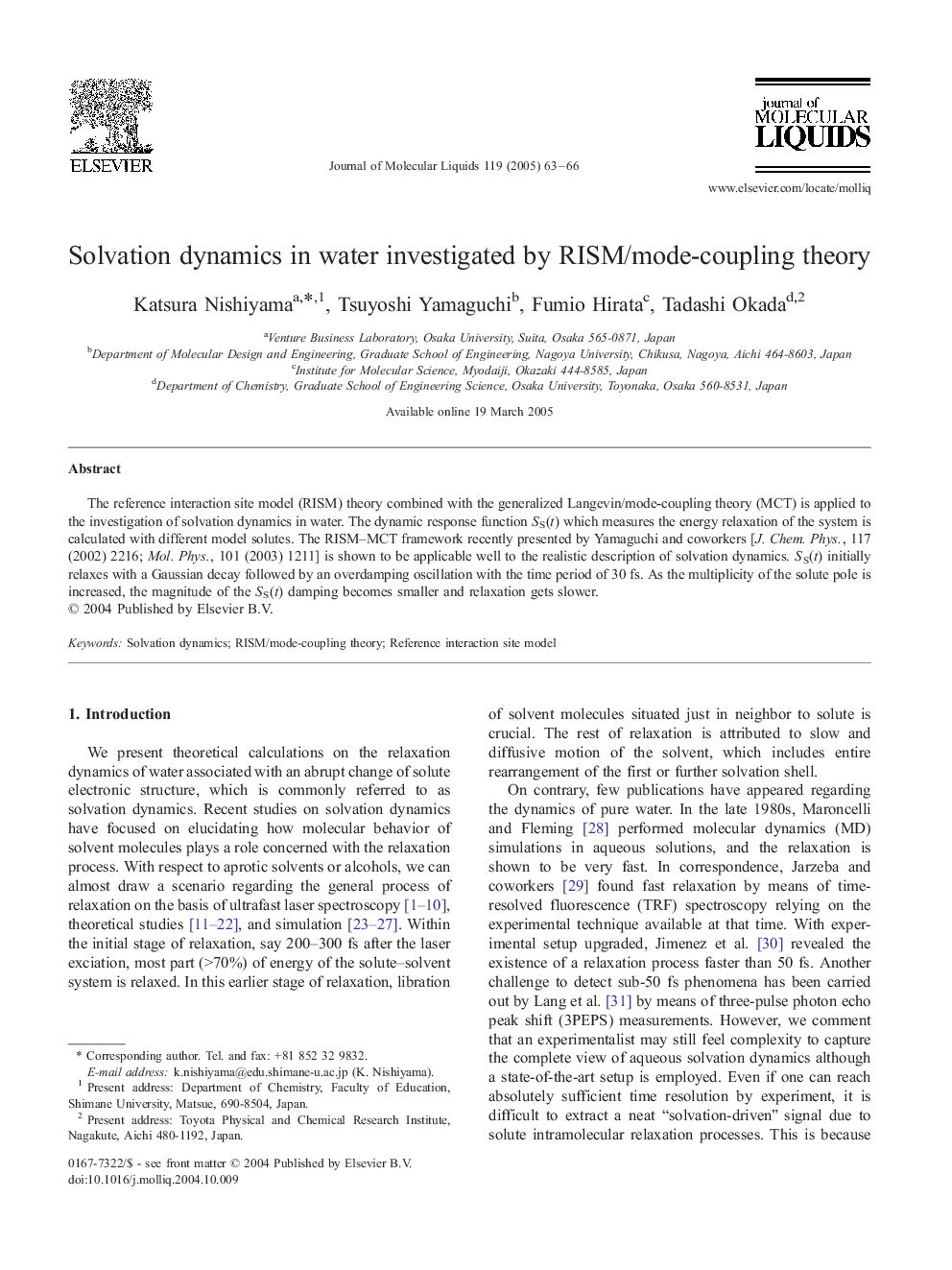| Article ID | Journal | Published Year | Pages | File Type |
|---|---|---|---|---|
| 9588649 | Journal of Molecular Liquids | 2005 | 4 Pages |
Abstract
The reference interaction site model (RISM) theory combined with the generalized Langevin/mode-coupling theory (MCT) is applied to the investigation of solvation dynamics in water. The dynamic response function SS(t) which measures the energy relaxation of the system is calculated with different model solutes. The RISM-MCT framework recently presented by Yamaguchi and coworkers [J. Chem. Phys., 117 (2002) 2216; Mol. Phys., 101 (2003) 1211] is shown to be applicable well to the realistic description of solvation dynamics. SS(t) initially relaxes with a Gaussian decay followed by an overdamping oscillation with the time period of 30 fs. As the multiplicity of the solute pole is increased, the magnitude of the SS(t) damping becomes smaller and relaxation gets slower.
Keywords
Related Topics
Physical Sciences and Engineering
Chemistry
Physical and Theoretical Chemistry
Authors
Katsura Nishiyama, Tsuyoshi Yamaguchi, Fumio Hirata, Tadashi Okada,
